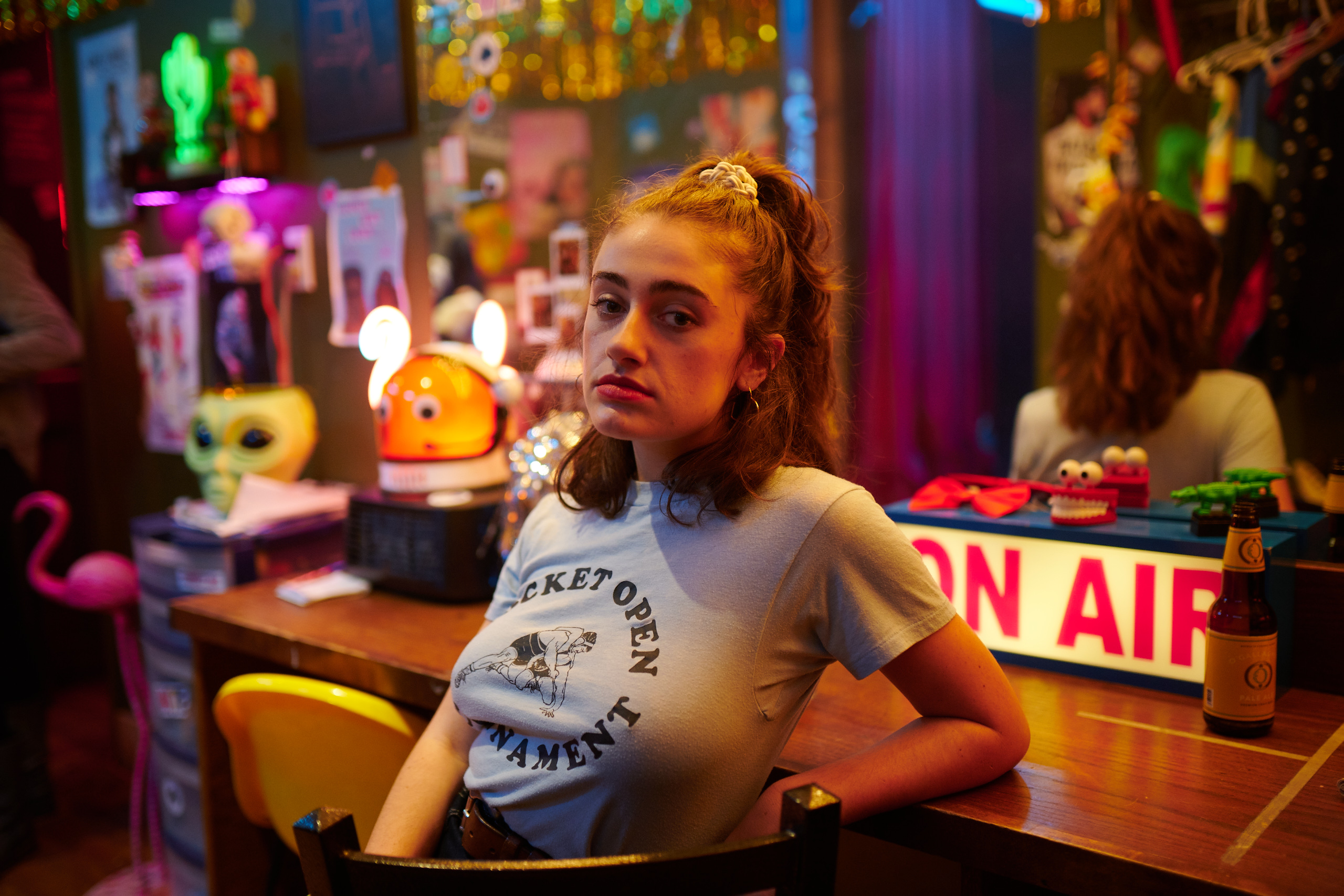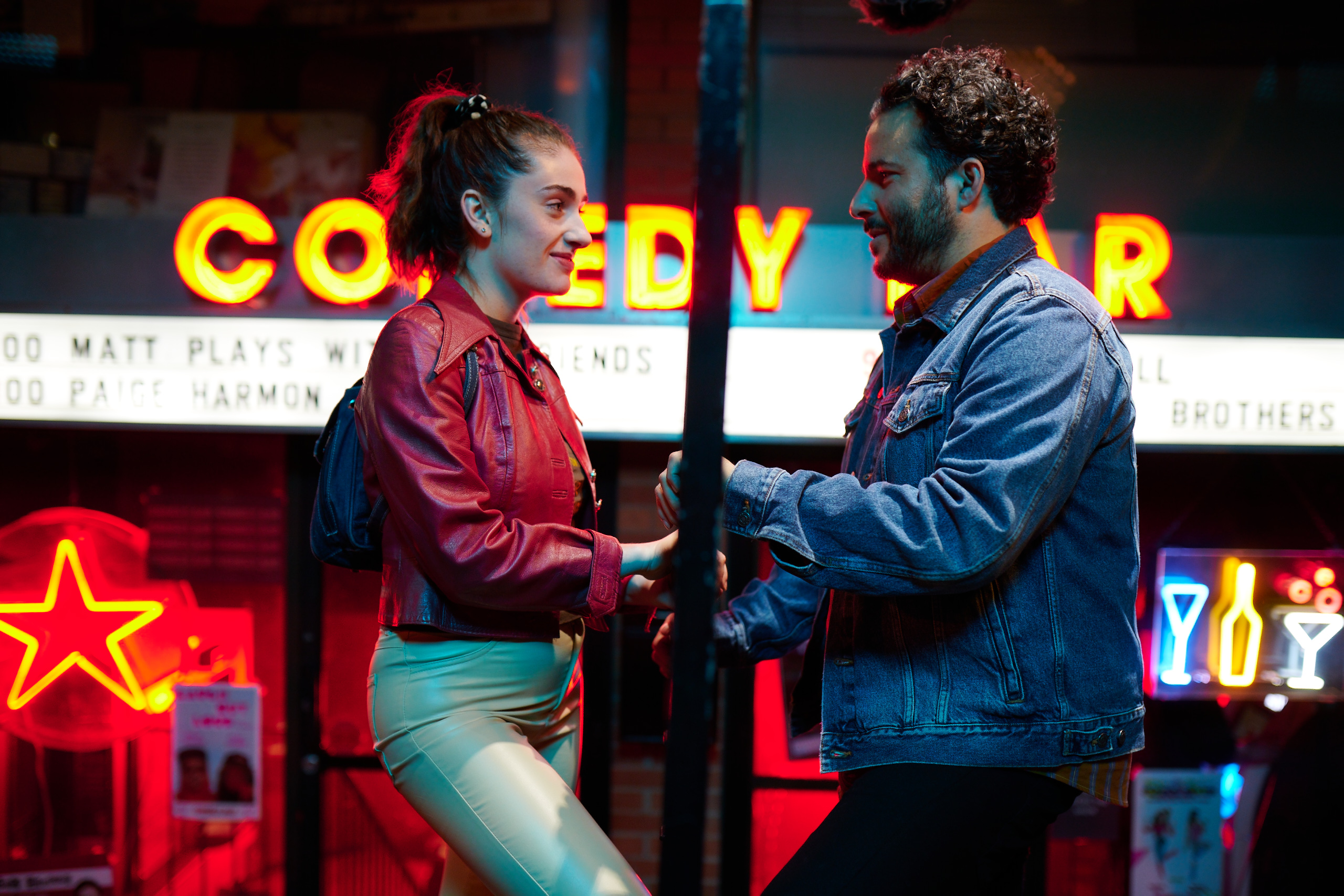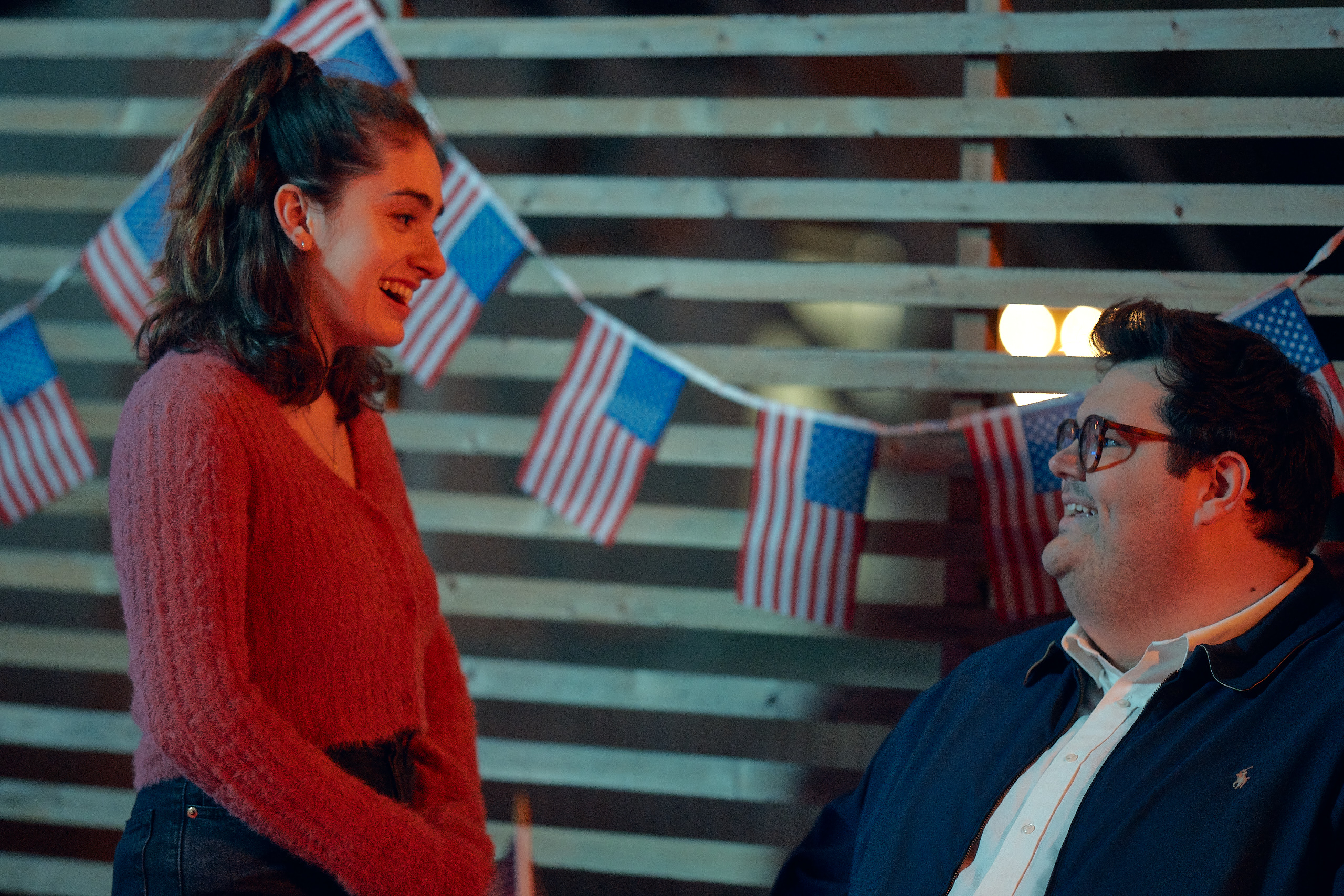
Trigger Warning: This review mentions a person’s experience with PTSD as a result of sexual assault.
“I Used to be Funny” follows Sam Cowell (played by Rachel Sennott), a comedian in Toronto who balances her income as an au pair to a grieving 12 year old, Brooke Renner (played by Olga Petsa). The film begins with headlines of Brooke as a missing person with Sam in a state of distress. Director, Ally Pankiw, takes the audience back and forth in time, showing the growth of their friendship while unpacking the events that lead us to both Sam and Brooke’s current position, specifically through Sam’s perspective. With the cast of comedians in combination with heavy subject matter, it’s fair to categorize this film as a “dramedy”. The screenplay covers a range of high and low tones, taking the audience along for the ride, as we fall in love with the characters (except some).

The film taps into the experiences of a female comic navigating a male dominated space, while staying aware of the public perception through comments on social media. Sennott gives a vivid performance of a depressed millennial coping with PTSD as a result of sexual assault. Her character is lovable and unexpectedly relatable. Through this perspective, Pankiw did an amazing job depicting the psychological tremors sexual assault survivors can experience while trying to rebuild their life, friendships, and self-esteem after such an event.
With that, the supporting roles played by Sabrina Jalees and Caleb Hearon as roommates of Sam were hilarious, warming and necessary. This triad is a perfect example of real comedians who have worked in the Toronto comedy scene together. Their dynamic felt natural, offering comedic breaks amongst heavy subject matter. The actors were even allowed to improvise during certain scenes to create that authentic energy with friends. It’s through these scenes that Pankiw shows the importance of supportive friends during dark times.

Despite her physical and mental predicament, Sam’s selflessness and commitment to care and protect Brooke, is the central theme of this film. As an audience member, I laughed, I cried, I felt uncomfortable, but ultimately, heart-warmed by the perseverance of what it takes to save those you love.
– Maya Prasasto
